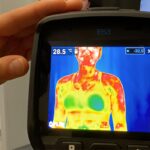New Brunswick, NJ – A new study from Rutgers University has found a significant link between adverse childhood experiences (ACEs) and the likelihood of using a gun for self-defense in adulthood. The research, published in the Journal of Psychiatric Research, highlights the long-lasting impact of childhood trauma on adult behavior, particularly in the context of perceived threats.
The study analyzed data from a nationally representative sample of U.S. adults with access to firearms. Researchers examined the relationship between ACEs, such as abuse and neglect, and factors like social distrust, threat sensitivity, depression, and self-reported defensive gun use.
Key findings include:
- ACEs increase threat sensitivity: Individuals who experienced childhood trauma were more likely to perceive threats from others even in ambiguous situations.
- Threat sensitivity drives defensive gun use: The study found that heightened threat sensitivity, rather than depression, was the primary factor linking ACEs to increased defensive gun use.
- Potential for overreaction: Increased threat sensitivity can lead to overreactions in situations that may not actually pose a danger, potentially increasing the risk of unnecessary gun use.
“Research that links risk factors from childhood to problems later in life often neglects the role that situational and cognitive factors might play,” said Sultan Altikriti, lead author of the study. “We tried to unpack the cognitive factors through which experiences from childhood affect behavior in adulthood.”
The researchers emphasize that reducing ACEs is crucial not only for immediate harm reduction but also for mitigating long-term negative consequences, including increased risk of gun violence. They suggest that interventions focusing on interrupting the downstream mechanisms of ACEs, such as addressing heightened threat sensitivity, could be more effective in mitigating their impact on adult behavior.
This study provides valuable insights into the complex interplay between childhood trauma, mental health, and gun violence. It underscores the importance of addressing ACEs early in life to prevent potentially harmful outcomes in adulthood.
Disclaimer: This news article is for informational purposes only and should not be considered medical or legal advice.











